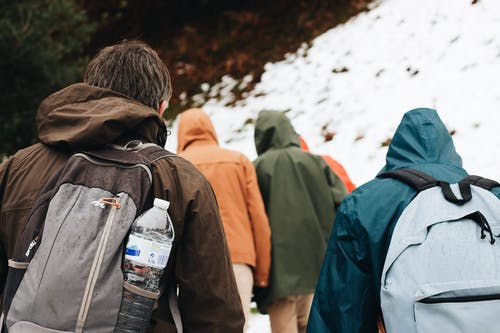The Unfiltered Truth About Water Quality While Traveling
- Ryle Eddings

- Aug 12, 2021
- 3 min read
Updated: Aug 25, 2021
Before I moved to Albania, I read online that the country's water quality was not that great and that I should try to avoid using tap water whenever possible. As an experienced traveler, I had grown confident in my reliance on bottled water for drinking and filtered water to clean vegetables or cook with.

That confidence was soon shaken after eating a salad at a local restaurant. I quickly realized that the restaurant had probably used unfiltered tap water to clean the vegetables, thereby causing me a couple of days of bathroom misery.
Uncontaminated water is a luxury that I often took for granted before I started traveling. But getting sick from ingesting dirty water can, at the least, be annoying. At its worst, unclean water could land you in the hospital.
After my experience in Albania, I started taking the subject of water quality more seriously. Below are a few tips I have picked up on how to keep yourself healthy when traveling to countries with poor water quality.
Know The Source
It's really important to research the quality of water in the specific area where you will be traveling. When I was in Vietnam, I discovered that some of the beaches where tourists swim have sewage pipes that lead directly into the ocean.
I have also heard horror stories from friends traveling in other countries who swore that the same water used for their bidet was then pumped into the shower.
The point is, even if the water looks clean, I find it a good rule of thumb to consider all water to be contaminated until my research proves otherwise.
Not all beaches in Vietnam are full of sewage, and not all cities in Albania have poor quality tap water. Some so-called developed countries carry just as much risk of harmful bacteria in their water supply as lesser developed ones.

Use the CDC website as a handy go-to for determining a specific area's water quality. You can also ask fellow ex-pats or locals in the area about the quality of water. But don't assume your water is safe until you do your research.
Bottled Or Boiled
Though filtered water or water treated with iodine tablets will kill many of the harmful bacteria in unclean water, I have discovered that filters don't necessarily remove all the potentially harmful bacteria from the water.
Iodine tablets are great for camping or shorter trips but can cause health issues if used for extended periods. Instead, I rely on bottled water for drinking and boiled water cleaning fruits and vegetables, or cooking.
That being said, it's important that you check that your bottled water is properly sealed. I have experienced numerous occasions where I have bought a bottle of water from a street vendor, only to discover that they had used empty bottles to fill up with tap water. Disgusting!
When boiling water, make sure to allow the water to boil for at least a full minute before consuming. Even then, I still prefer to drink bottled water and only use the boiled water for brushing my teeth or cooking.
I also never use the ice given to me at restaurants. Some of the more upscale restaurants and hotels will only use filtered or treated water for their ice cubes, but many do not. Freezing water does not kill bacteria and so ice made from untreated tap water can be just as dangerous to ingest.
Conclusion
Concerning yourself with a country's water quality doesn't need to be an all-consuming process. Like my experience with the salad in Albania, you will never completely safeguard yourself from unclean water.
Researching water quality before traveling, and using bottled or boiled water once you arrive at your destination will decrease your risk of ingesting harmful bacteria from unclean water.

These minor precautions could mean the difference between a joyful trip to see the sights or a miserable trip to the bathroom.
Want to know more? Are you interested in becoming a contributor for Pedacitos? We'd love to hear your stories! Send me a message and I will get back to you!







Comments